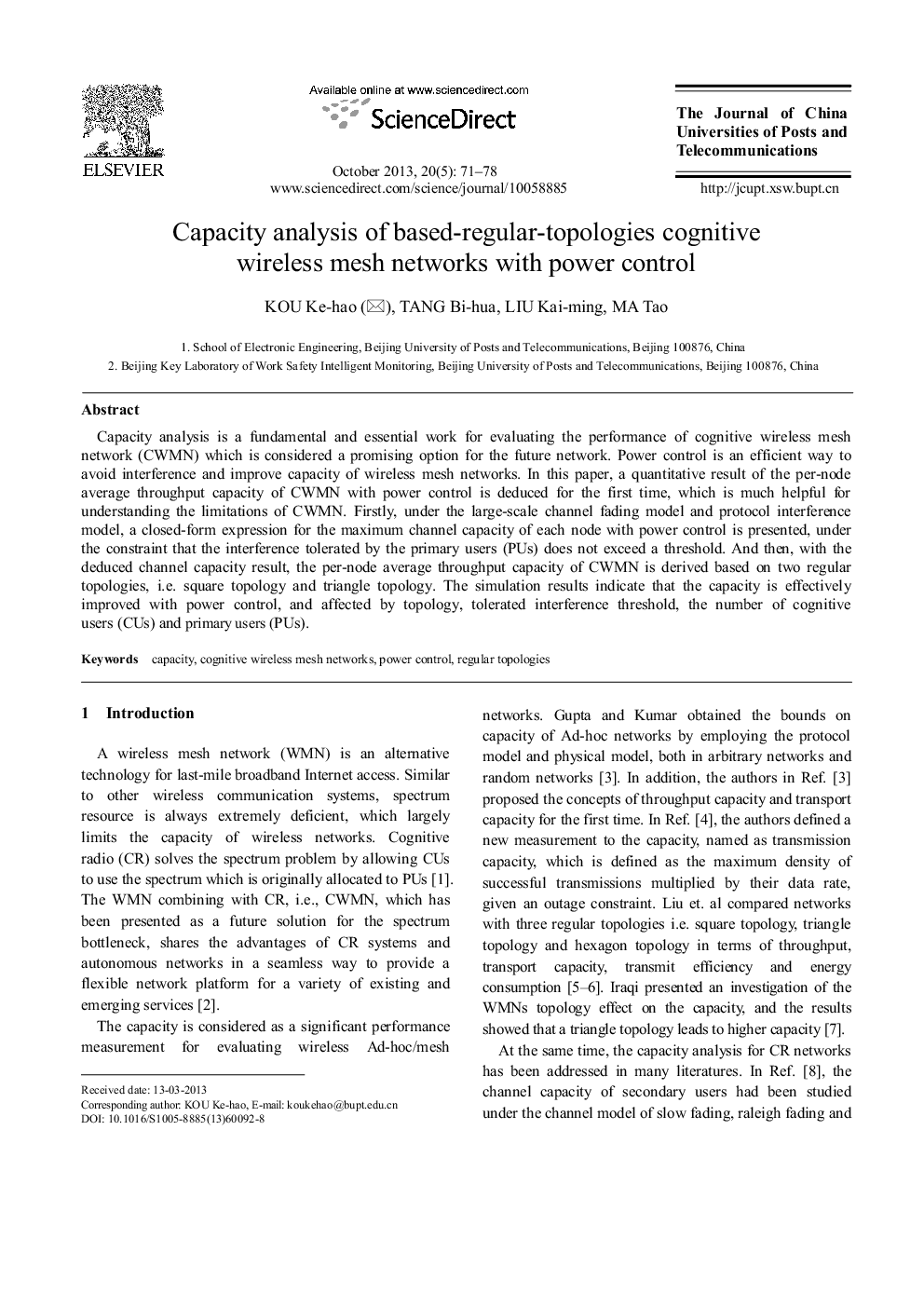| Article ID | Journal | Published Year | Pages | File Type |
|---|---|---|---|---|
| 724974 | The Journal of China Universities of Posts and Telecommunications | 2013 | 8 Pages |
Capacity analysis is a fundamental and essential work for evaluating the performance of cognitive wireless mesh network (CWMN) which is considered a promising option for the future network. Power control is an efficient way to avoid interference and improve capacity of wireless mesh networks. In this paper, a quantitative result of the per-node average throughput capacity of CWMN with power control is deduced for the first time, which is much helpful for understanding the limitations of CWMN. Firstly, under the large-scale channel fading model and protocol interference model, a closed-form expression for the maximum channel capacity of each node with power control is presented, under the constraint that the interference tolerated by the primary users (PUs) does not exceed a threshold. And then, with the deduced channel capacity result, the per-node average throughput capacity of CWMN is derived based on two regular topologies, i.e. square topology and triangle topology. The simulation results indicate that the capacity is effectively improved with power control, and affected by topology, tolerated interference threshold, the number of cognitive users (CUs) and primary users (PUs).
